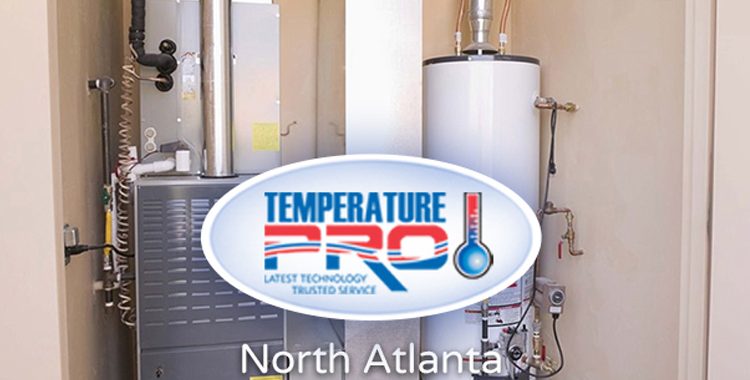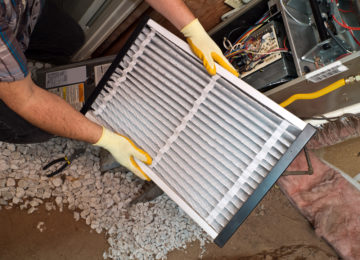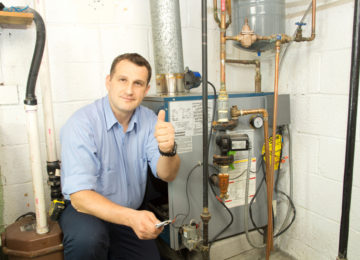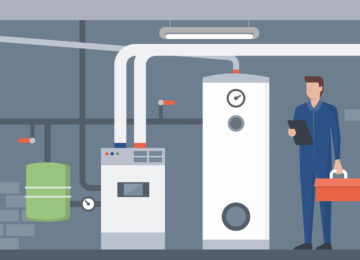Winter is coming! It is that time of year where we are transitioning into the colder and colder weather. At TemperaturePro, we recommend that HVAC owners with old units upgrade them during the fall season, BEFORE winter approaches. We believe it is important to be proactive when it comes to owning an HVAC because they are relied upon every day to stay comfortable inside the home.
In the theme of proactive HVAC ownership, we dedicated this blog to educating you on different furnace options that are available. Since we encourage our HVAC owners to be proactive, we must provide the information to keep consumers informed so that they may understand the option that is best for them. After reading this blog you’ll understand how furnaces and boilers are rated, and what different efficient options are out there and have a basic understand of how they function.
Ratings
When searching for a new heating system, it is helpful to know how people rate each furnace or boiler regarding efficiency. The Annual-Fuel-Utilization-Efficiency Rating (AFUE) is the standard rating system for furnaces and boilers. AFUE is the basic percentage of incoming fuel that converts into space heat, instead of being lost.
For example, a furnace that has a 95 AFUE rating, uses 95% of the energy it consumes and converts it into heat while 5% of the energy is lost to waste. Therefore, the higher the percentage, the better, but this may also result in an increase in price. It is important that when you search for a new heater, you consult a heating expert to make sure you find the best furnace option for you; a system that is efficient but also fits inside of your budget.
Condensing Furnaces
Your traditional furnace probably doesn’t have a very high AFUE rating, but the newer, more modern, condensing furnaces do. That’s because a traditional furnace disburses heat, moisture, and gas outside, while a condensing furnace can recapture initial waste and cycle it back through the combustion process. Therefore, fewer amounts of energy byproducts are wasted, and more are converted into heat. A condensing furnace has a huge advantage in overall energy efficiency and can typically be found with a very high AFUE rating.
Condensing furnaces may be more expensive, but the cost pays off in the long term because they use more of their energy instead of wasting it. According to the U.S. Department of Energy, the investment of a condensing furnace can result in a minimum savings of $2,700 over the life of a furnace.
Variable Speed Blower
A variable-speed blower is great because it can work on multiple levels depending on a homeowner’s preferences of temperature. With a traditional furnace, which comes with a fixed speed blower, it is either on or off. Thus, when the furnace is on, it is always working at a maximum capacity. Versus a variable-speed blower that can heat your home at multiple levels, depending on your needs and desires.
A variable-speed blower can run at a variety of speeds, monitoring data from your heating system and automatically adjust to make your home more comfortable. It can even compensate for factors such as dirty filters by increasing the speed. Not only does a variable-speed blower tailor to your personal preferences, but provides a variety of other benefits as well:
Efficiency
-
Variable-speed blowers use less electricity, meaning lower utility bills every month.
Less Sound
-
Variable-speed furnaces are designed to ensure quieter operation. The furnace will slowly ramp up to speed, so you don’t hear that notorious “kick.”
Indoor Air Quality
-
When your furnace isn’t heating, the fan is still in constant operation. That allows for the air to continuously flow through your filters, cleaning the air of any contaminants.
Electrical Ignition Systems
Older furnaces have a constant gas flame burning, which can waste a lot of energy by constantly burning fuel. Newer furnaces have an electrical ignition system that is safer and more reliable than the eternal flame. Since electrical ignition systems use a controlled resistance heating element to ignite the gas burner, there is less waste and carbon monoxide gas.
Electrical ignition is another way to increase efficiency in your home heating system.
Be Efficient This Winter, With TemperaturePro
TemperaturePro is here to help you stay cozy during the colder weather, and to find you the right furnace for your specific needs. We will guide you every step of the way, answering any questions you may have, to make the purchase to stay comfortable this winter.
If you have any more questions about heating systems or if you would like to schedule an appointment, contact us today!




